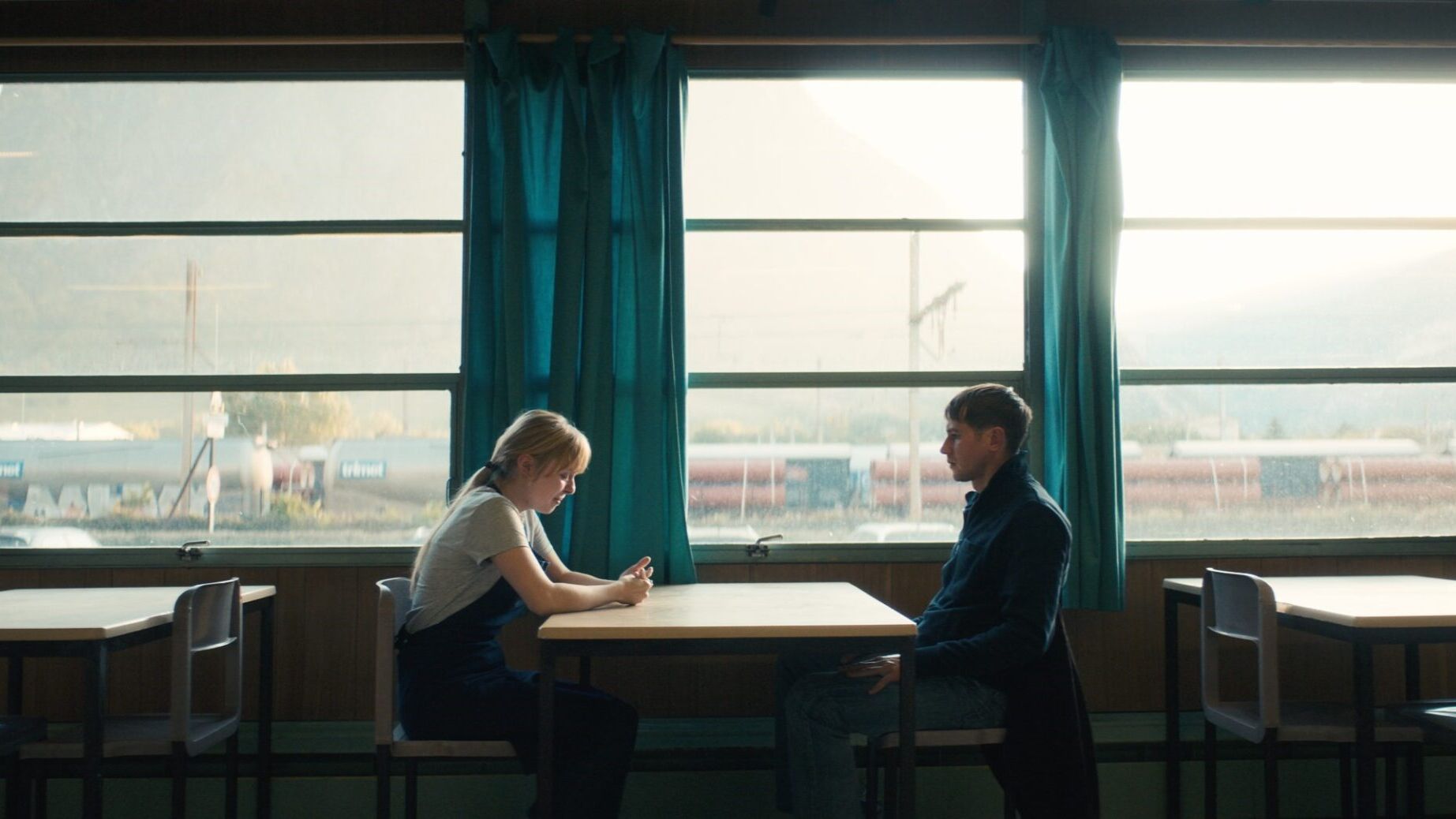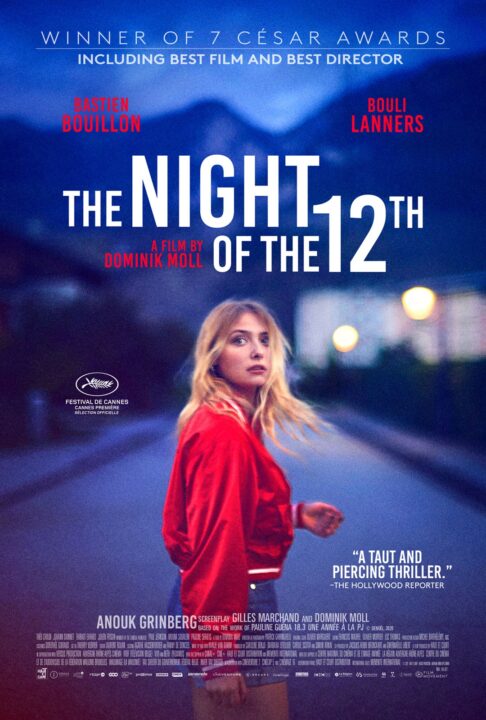It’s no secret that true crime is one of the most popular themes in the “entertainment” space. All too often in this current landscape, one person’s tragedy is turned into cultural fodder that we devour weekly in the form of podcasts and TV shows, sitting through a plethora of advertisements to get our “whodunnit” fix. What is it about true crime that is so appealing? Is it our innate voyeuristic nature, or our fascination with death and its permanence? Audiences are left to wrestle with those complex rhetorical questions in French director Dominik Moll’s layered crime drama, The Night of the 12th (La Nuit du 12).
Clara Royer (Lula Cotton-Frapier) is heading home after a night out with friends when she is confronted by a stranger on a dimly lit street. Masked and unrecognizable, he calls Clara by name – catching her off guard – before dousing her in gasoline and throwing a lighter in her face. Head and torso ablaze, she runs a short distance before collapsing onto the street and is left to die. The graphic nature of the crime is a shock to the community, especially the police department. Even though they are used to dealing with the sad reality of death every day, it never gets easier to tell the family of a loved one that they have passed.
From the very beginning, Clara’s case feels strangely unique and the deeper investigators dig into her background, the more obsessed they become. Police captain Yohan Vivès (Bastien Bouillon) begins to spiral after initial leads become dead ends. After speaking with Clara’s best friend and uncovering dark truths about her past, Clara’s sexual history becomes his North Star. The film toes the line between being concerned and shaming Clara’s past actions. A pattern quickly emerges that every suspect on the police’s radar has slept with Clara rather recently, more than one being an illicit affair.
Yohan becomes fixated on this fact, and his personal feelings toward the matter seep into his professional actions. The evidence is right in front of him, and at the same time, isn’t there at all. No matter how strong his intuition is, it cannot compete with physical evidence – or lack thereof. Clara’s killer roams free, and that haunts Yohan to no end.
The Night of the 12th is ominous and dark both in subject matter and visual aesthetic. Setting the film in the mountainous French commune of Saint-Jean-de-Maurienne has a baked-in sense of isolation that feels both idyllic and anxiety-inducing. Composer Olivier Margueri’s score offers a beautiful mix of buoyancy sprinkled with melancholy. At times reminiscent of the French pop scene he used to frequent as a musician, Margueri uses soft vocal melodies and luxuriant arrangements to give the film a sense of cautious optimism.
Filmmaker Dominik Moll combines elements of documentary and fiction in The Night of the 12th, adapting a book from writer Pauline Guéna, who spent a year immersed in the Versailles Criminal Investigation Department. Her book, “18.3 – une année à la PJ” (18.3 – A Year With the Crime Squad) is the source of inspiration for the film. An official selection of the 2022 Cannes Film Festival, The Night of the 12th is a tough film to swallow but an equally important story to digest.
Distributed by Film Movement. Playing at NYC’s Quad Cinema this Friday, May 19, 2023, followed by additional markets including Los Angeles, Seattle, St. Louis, and Pittsburgh.
Morgan Rojas
Certified fresh. For disclosure purposes, Morgan currently runs PR at PRETTYBIRD and Ventureland.


